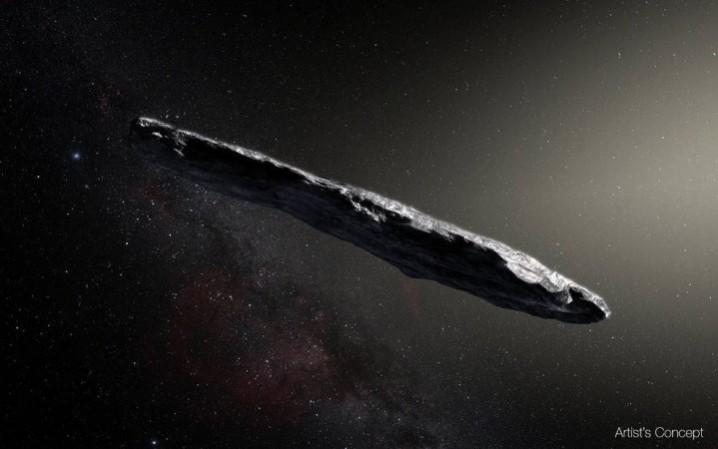It was in 2017 that space scientists discovered Oumuamua, the first known interstellar object that reached the solar system. The discovery of Oumuamua perplexed many and a majority of space scientists classified it as a comet. However, Avi Loeb, a Harvard physicist stood apart, and he suggested that Oumuamua could be most probably an alien probe.
No cometary tail and excess push add up to the mystery
Ever since the discovery of Oumuamua, Avi Loeb has been arguing that this mysterious object lacked the characteristics of a comet that includes its classic tail. And now, just a week before the release of his new book, 'Extraterrestrial: The First Sign of Intelligent Life Beyond Earth', Loeb has once again assured that Oumuamua could be an alien interstellar probe.

"Some people say, 'OK it's not a comet, maybe it's just a rock.' But the problem is, about half a year later, it was reported that there was an excess push in addition to the force of gravity acting on it by the sun. It exhibited some additional force. Usually, that force comes from the rocket effect of the cometary tail, but there was no cometary tail. So the question was, what produces this excess push?" Loeb told in a recent interview with Salon.
Loeb assures Oumuamua's artificial origin
Loeb suggested that Oumuamua showed all characteristics of its artificial origin, and he made it clear that humans could not chase it with the best rockets we have made as of now.
"To me, it demonstrated the case that perhaps 'Oumuamua was artificial, definitely not made by us because it's been only a few months close to us. We couldn't even chase it with our best rockets," added Loeb.
Even though Loeb is confident regarding the alien connection of Oumuamua, several top space experts including Don Lincoln of the Fermi National Accelerator Laboratory revealed that the possibility of this object being an alien spaceship is very unlikely. According to Lincoln, the excess acceleration showed by Oumuamua could be due to a phenomenon called outgassing.

















